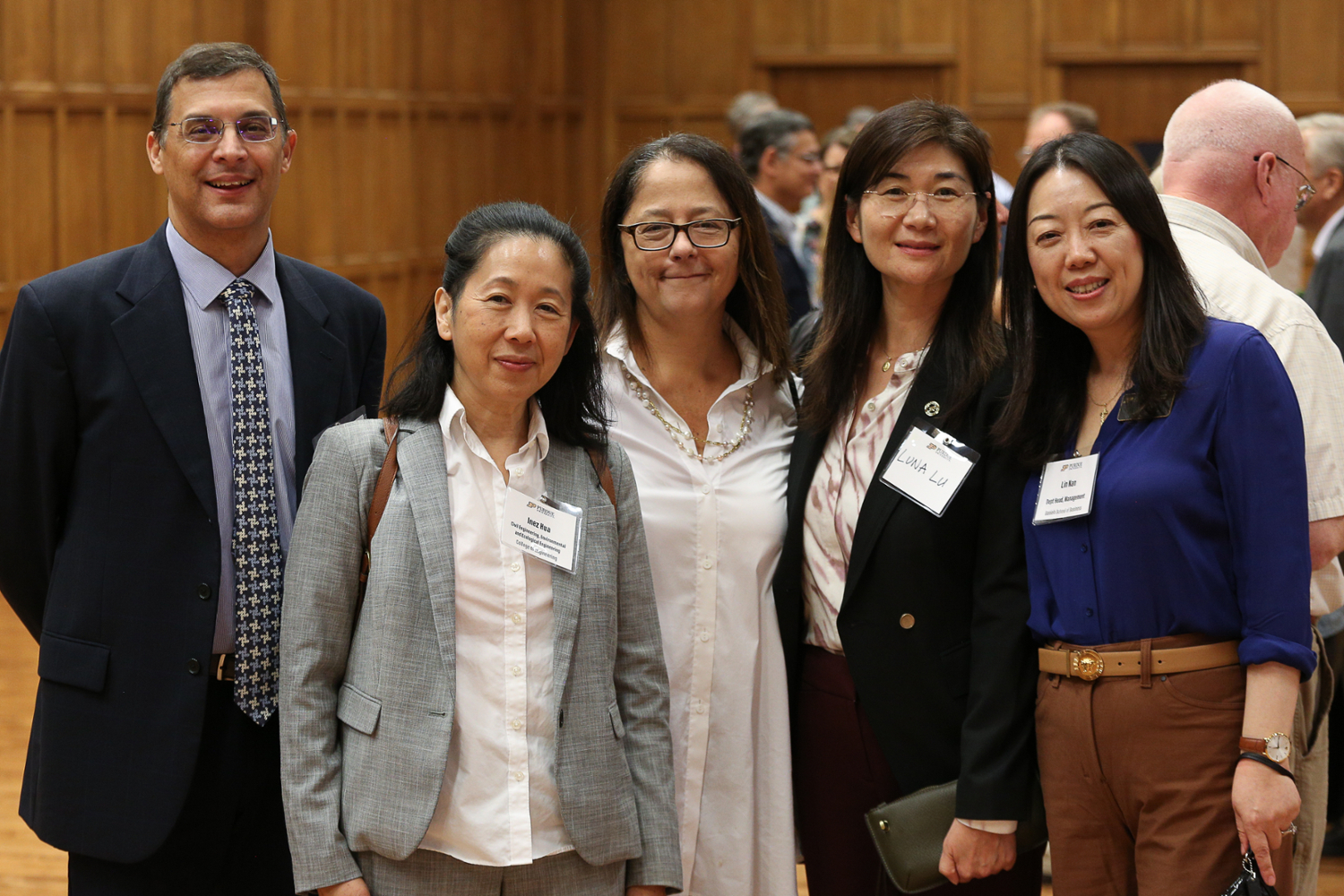
Purdue inducted 38 instructors into its Book of Great Teachers, which honors outstanding teaching faculty who have demonstrated sustained excellence in the classroom.
The induction ceremony, conducted as part of the annual Celebration of Teaching Excellence, is held every five years. The event took place Tuesday, Sept. 26 in Purdue Memorial Union's North Ballroom.
Automatically included in the Book of Great Teachers are professors with 10 years of service to the university who previously have been honored with the Charles B. Murphy Outstanding Undergraduate Teaching Award. Other inductees have at least 15 years of service to the university and were nominated by students, alumni and colleagues.
Purdue Provost Patrick Wolfe presented the awards and gave closing remarks. He spoke about the many ways teaching contributes to Purdue’s land-grant mission. Wolfe also said that helping students succeed is one of the great joys of the teaching profession.
“Teaching is such an impactful role,” he said. “When you help people think in structured ways, when you make that expertise available more broadly, it will have a rippling effect throughout students’ lives, within their communities, and across the state and world.”
Jenna Rickus, Purdue’s vice provost for Teaching and Learning, said Purdue’s land-grant mission and trajectory of accelerated excellence help foster an environment rich with discovery and purpose.
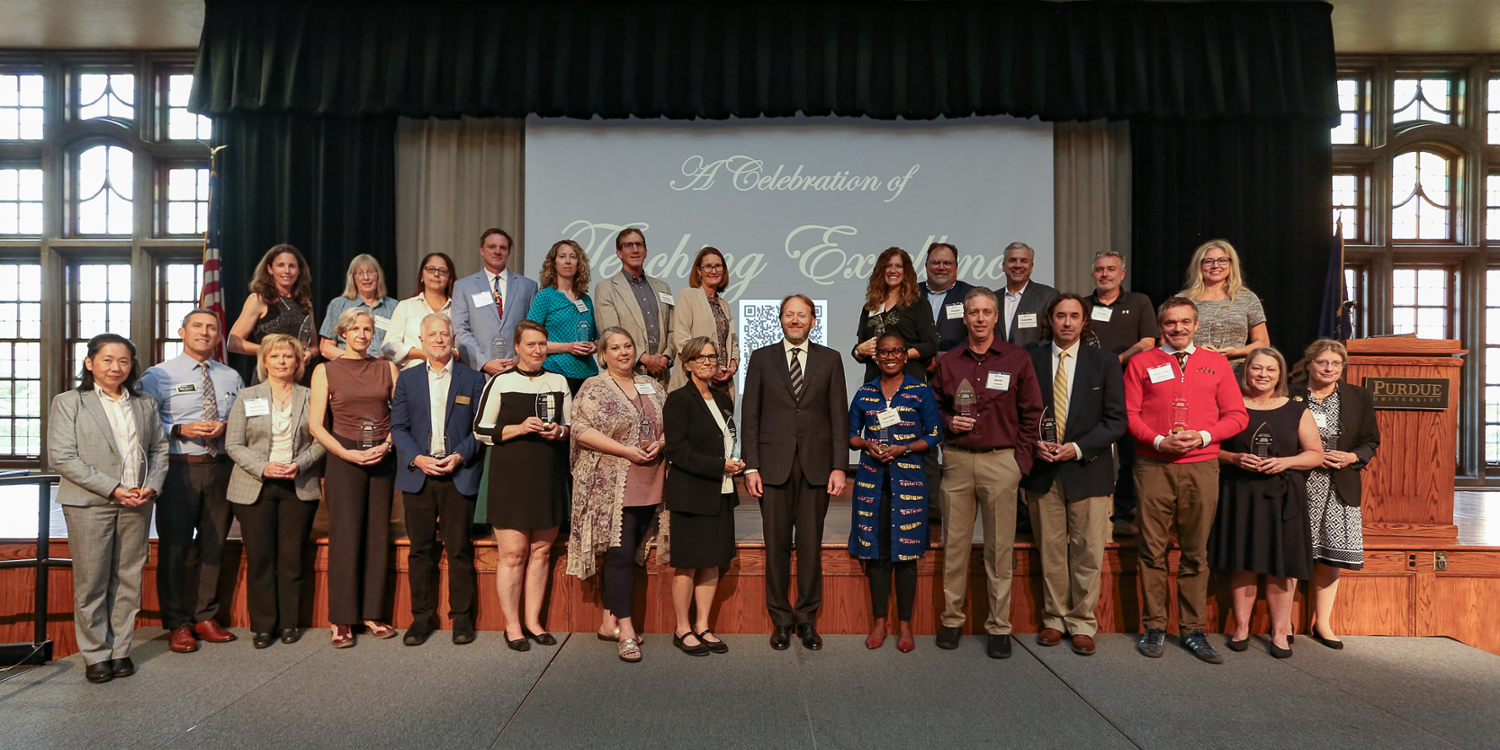
Pictured: Provost Patrick Wolfe stands with Purdue instructors as they are inducted into the Book of Great Teachers
“The awardees we celebrate today are incredible researchers, inventors, authors, and creators as well as teachers,” Rickus said. “This makes sense to me because discovery and invention are rendered almost meaningless if you don’t teach someone about what you’ve learned or created. We can learn from many in this room that teaching is not just one-way dissemination of knowledge – not at all. And teaching makes us better researchers, inventors, authors, creators.”
Everyone inducted into the Book of Great Teachers is listed on a bronze-and-walnut wall display in the west foyer of the Union. The display was first unveiled in 1999. Including the most recently inducted professors, the book includes 467 names.
Keys to Learning: How one Purdue professor is teaching first-year engineers to re-train their brains
Beyond the Book of Great Teachers recognition, Purdue honored several other instructors with a variety of awards. Mike Melloch, professor of electrical and computer engineering, received the Class of 1922 Outstanding Innovation in Helping Students Learn Award.
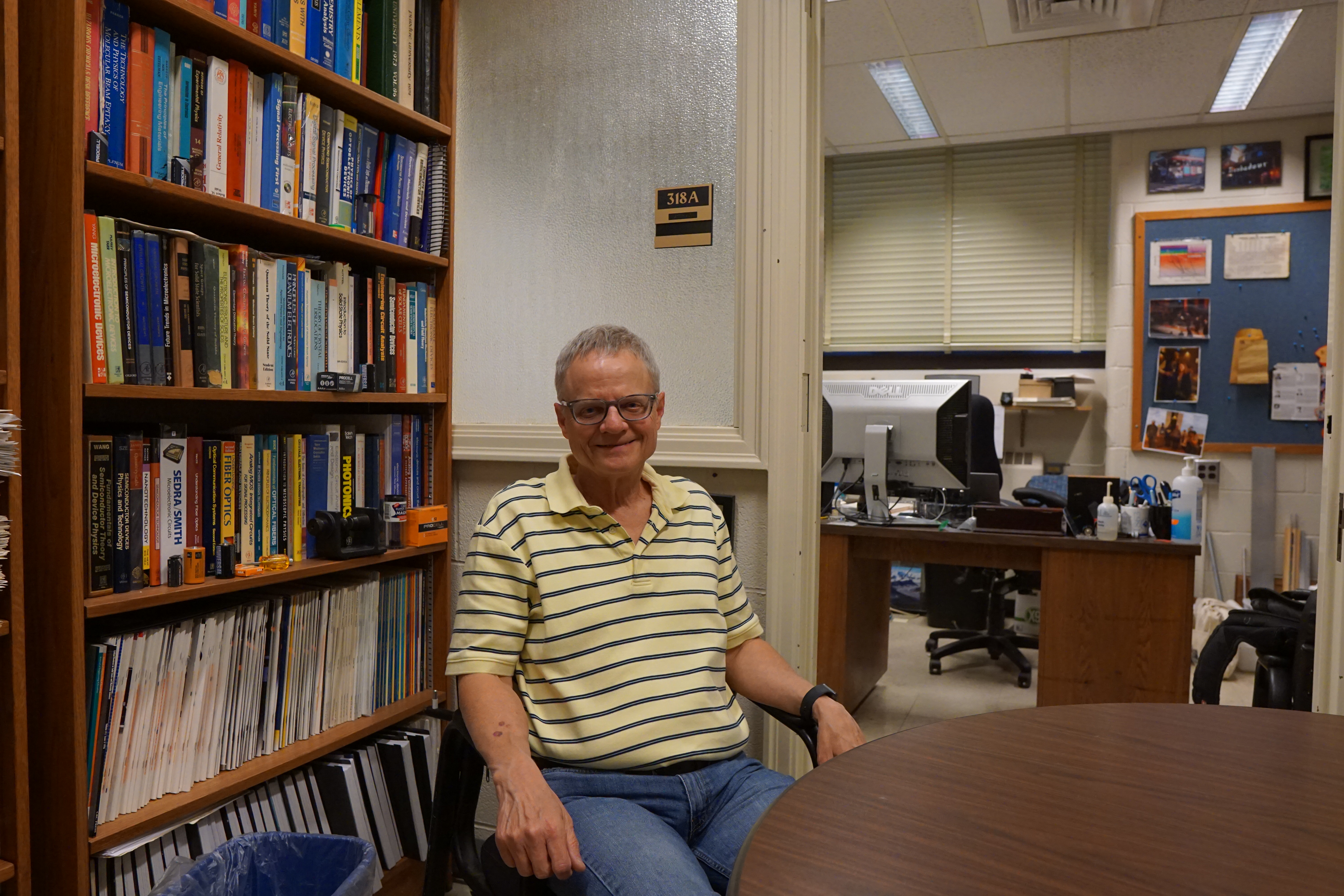
Pictured: Professor Mike Melloch sits for a picture outside his office in the Purdue Electrical Engineering building
Melloch, who was inducted into Purdue's Book of Great Teachers in 2013, is now piloting two sections of a one-credit course called “The Keys to Learning: Unlocking the Brain’s Potential.” Geared toward engineering students in their first semester, ENGR 103 delves into the best study practices, the psychological aspects of being a successful learner and the underlying factors that can help brains work at peak efficiency.
“So many students never learned how to learn,” says Melloch, noting how many students struggle their first semester because what worked in high school no longer works in the college setting. “Eventually, they hit failure. Things become difficult, and there are students who give up. In this class, we talk about how the brain works, the importance of sleep, and the role exercise and nutrition play in the health of the brain. We also talk about how the brain is always changing, and in 20 years, you can be a totally different person than you are today.”
Melloch shares he has always been passionate about teaching but developed a stronger sense of responsibility when his daughter started attending Purdue in 2006. When he started considering each of his students as someone else’s child, the call to improve his teaching felt more urgent. Melloch started reading books on learning and incorporating insights into his engineering courses. From there, his interest in learning just kept growing.
“It got to the point where I would spend a few minutes at the end of every class talking about some of these concepts, and students started telling me how helpful that was,” Melloch recalls. “They were doing better in their other courses after following some of this advice.”
Fast forward to 2023, when each of the students in Melloch’s class can speak to the impact of having their high school education disrupted by a global pandemic.
“I struggled in high school and made some mistakes, and I’m still making mistakes, that’s for sure,” says Chakravarthy Mallarapu, who hopes to study aerospace engineering. “One thing I’ve taken away from this class is the importance of being an active learner and striving to grasp the material, which sometimes means not listening to music when you’re studying or not moving on from the material until you really understand it.”
Charles Persons, also a first-year engineering student, believes what makes the class so valuable is that the learning is applicable in daily life.
“We’ve examined both abstract and practical ways the brain learns, how we are unique as opposed to other animals and other mammals, and how we can use the function of the brain to our advantage and optimize our learning,” Persons shares. “Everyone can benefit from learning about themselves, and there’s no better a time to work on understanding your brain and your learning than in your college career.”
Matthew Calvo, another student in Melloch’s course, believes the subject matter is applicable for all majors at all grade levels, but adds that the content is particularly salient for students at the beginning of their Purdue career.
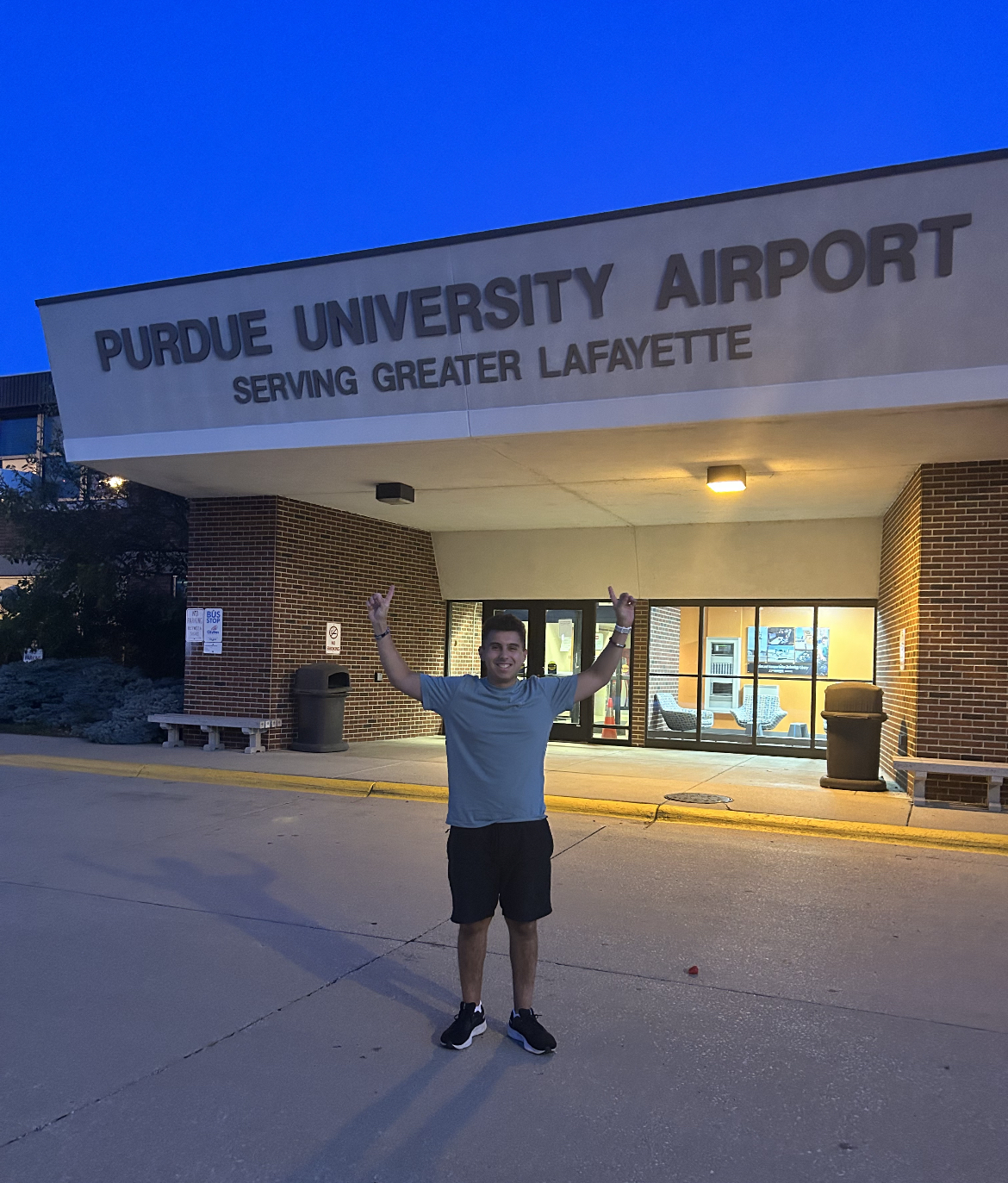
Pictured: Matthew Calvo poses for a picture outside the Purdue University Airport
“I want to go into aerospace engineering, and there is a lot of math and complex science behind it. While there are a lot of professors who are extremely knowledgeable in physics and math, not every professor can help students comprehend the material,” Calvo says. “But that’s been Professor Melloch from day one – he told us this will be a life-changing course, and I believe him.”
Melloch’s book, “The Keys to Learning: Unlocking Your Brain’s Potential,” is available for Kindle.
Below is a full list of this year’s awards and honorees:
- Class of 1922 Outstanding Innovation in Helping Students Learn Award: Michael R. Melloch, Electrical and Computer Engineering
- Distinguished Faculty for Academics: Tithi Bhattacharya, History
- Distinguished Faculty for Research: Margo J. Monteith, Psychological Sciences
- Excellence in Instruction Award: Erin S. Ward, Psychological Sciences
- Exceptional Early Career Award: Swati Srivastava, Political Science; Zahra A. Tehrani, Honors College; Jamie L.S. Woodyard, Pharmacy Practice
- Provost’s Award for Outstanding Graduate Mentor: Elizabeth A. Strickland, Speech, Language, and Hearing Sciences
- Purdue Online Excellence in Course Design and Teaching (Non-Credit): Vincent G. Hornbach, Teaching and Learning Technologies; Julius C. Keller, Aviation and Transportation Technology; Alexus Maschinot, Teaching and Learning Technologies
- Purdue Online Innovative Course Design and Use of Technology: Kharon D. Grimmet, Educational Studies; Angela D. Holtsclaw, Educational Studies; Adrie A. Koehler-Blair, Curriculum and Instruction; Kadir Kozan, Educational Studies; Daniela Vilarinho Rezende Pereira, Educational Studies; Tithi Bhattacharya, History
- Purdue Online Scholarship of Teaching and Learning Award: Adrie A. Koehler-Blair, Curriculum and Instruction
- Teaching for Tomorrow Fellowship Award: Sarah Eason, Human Development and Family Studies; Jillian R. Hubertz, Speech, Language, and Hearing Sciences; Zoeanna A. Mayhook, Libraries and School of Information Studies; Amanda Ward, Nursing; Victoria L. Lowell, Curriculum and Instruction
- Teaching Leadership Award: Joshua E. Boyd, Communication; Rebecca E. Ciez, Environmental and Ecological Engineering; Orla M. Hart, Biochemistry; Anthony C. Ilobinso, Curriculum and Instruction; Alex N. Isaacs, Pharmacy Practice; Kevin T. Jones, Curriculum and Instruction; Tamara L. Kinzer-Ursem, Biomedical Engineering; Chenell Loudermill, Speech, Language, and Hearing Sciences; Victoria L. Lowell, Curriculum and Instruction; Jennifer M. Simpson, Speech, Language, and Hearing Sciences; Denis Uebiyev, Curriculum and Instruction; Yang Wang, Management; Stuart K. White, Curriculum and Instruction; Weijian Yan, Curriculum and Instruction
- Charles B. Murphy Outstanding Undergraduate Teaching Award: Laura C. Bowling, Agronomy and Natural Resources; Maria C. Santagata, Civil Engineering; Greg J. Strimel, Technology, Leadership, and Innovation; Michael C. Witt, Libraries and School of Information Studies
- Teaching Academy: Jasmine L. Begeske, Educational Studies; Adrie A. Koehler-Blair, Curriculum and Instruction; Ann L. Loomis, Nursing; Cara C. Putman, Law Communications and Ethics; Catherine L. Searle, Biological Sciences; Jennifer M. Simpson, Speech, Language, and Hearing Sciences; Ravishankar C. Subramaniam, Physics and Astronomy; Rustin D. Webster, Engineering Technology
- Book of Great Teachers: Bradley L. Benhart, Construction Management Technology; Cale A. Bigelow, Horticulture and Landscape Architecture; Ernest R. Blatchley III, Environmental and Ecological Engineering and Lyles School of Civil Engineering; Laura C. Bowling, Agronomy and Natural Resources; Dennis Buckmaster, Agricultural and Biological Engineering; Christian E. Butzke, Food Science; Shelley A. Claridge, Chemistry; Michael N. Dana, Horticulture and Landscape Architecture; Jennifer E. Dobbs-Oates, Human Development and Family Studies; Natasha T. Duncan, Honors College; Elizabeth A. Flaherty, Forestry and Natural Resources; Andrew M. Freed, Earth, Atmospheric and Planetary Sciences; Esteban Garcia, Computer Graphics Technology; Mark C. Hall, Biochemistry; Steven G. Hallett, Horticulture and Landscape Architecture; Inez Hua, Environmental and Ecological Engineering and Lyles School of Civil Engineering; Bryan J. Hubbard, Construction Management Technology; Pamela M. Karagory, Nursing; Signe E. Kastberg, Curriculum and Instruction; Erika Birgit Kaufmann, Departments of Mathematics and Physics and Astronomy; Milind Kulkarni, Electrical and Computer Engineering; Dawn D. Laux, Computer and Information Technology; Karen Marais, Aeronautics and Astronautics; Jill A. Newton, Mathematics Education; Haley F. Oliver, Food Science; Kathryn S. Orvis, Horticulture and Landscape Architecture; Derek A. Pacheco, English; Yvonne M. Pitts, History; Jeffrey F. Rhoads, Mechanical Engineering; Elizabeth A. Richards, Nursing; Maria C. Santagata, Lyles School of Civil Engineering; Amy Heck Sheehan, Pharmacy; Jennifer M. Simpson, Speech, Language, and Hearing Sciences; Marcia C. Stephenson, School of Languages and Cultures; Phillip J. Vanfossen, Curriculum and Instruction; Christine A. Wilson, Agricultural Economics; Michael C. Witt, Libraries and School of Information Studies; Melinda S. Zook, History
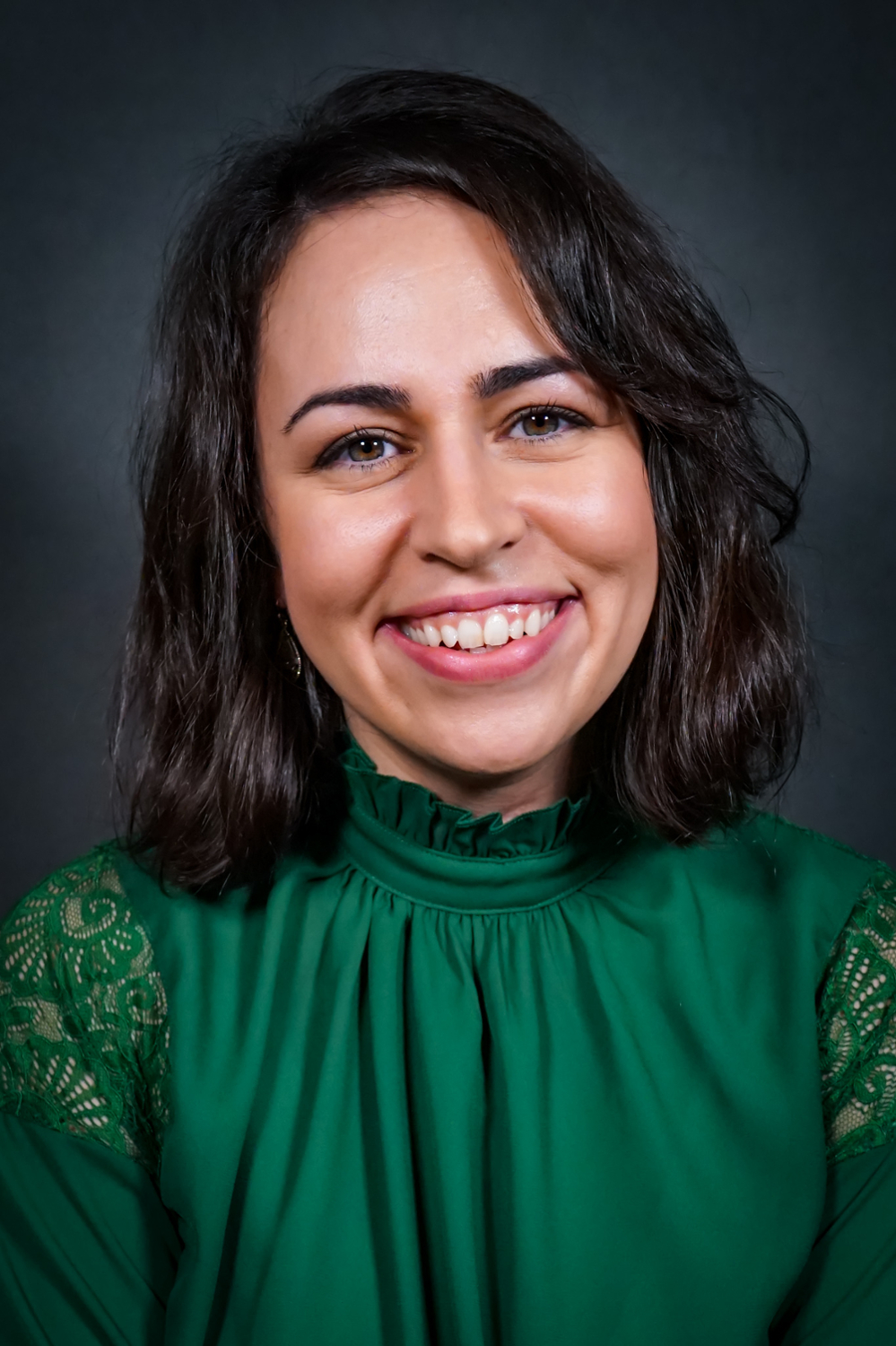
Andrea Mattingly
Director of Communications, Student Success Programs, andrea@purdue.edu
